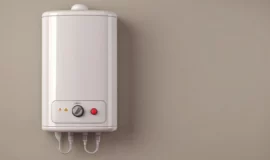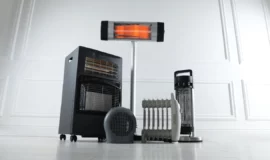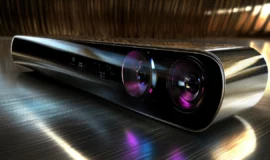
Ever since solar panel systems were introduced, people have wished to take their full advantage. In summer, there is more energy consumption with higher usage of fans and air conditioners. Considering this, you might want to know about the solar panels required for a 1.5-ton AC. However, there are multiple factors that you need to consider, which are mentioned in the blog.
Factors To Consider When Purchasing Solar Panels For AC
Before you make a decision to get a solar panel system for AC, there are certain factors that you need to consider:
Wattage: One of the important factors that you need to consider is the watts used by a 1.5-ton AC. This will help you decide on how many watts of solar panel plates you require.
Know the Type of AC: You need to see if the AC is an inverter or non-inverter/conventional, which will help you understand the power consumption. The best inverter ACs have higher energy efficiency.
Budget: Consider your budget and look for an option accordingly. It usually depends on the solar panel watts you are getting.
Besides these factors, these factors you also need to consider the solar panel brand and the type of solar panel system you want to opt for.
Solar Panels Required For 1.5 Ton Inverter AC
The number of solar panel plates you require for the inverter AC depends on the power it requires. However, make sure that the solar panel system has the ability to generate excess electricity, more than you require. This is because it is not necessary that a solar panel will generate electricity at 100% of its capacity.
The following are the number of 600-watt solar panels:
| 1.5 Ton AC | kWh | Number of 600-watt solar panel plates | Price Range (Rs.) |
| 1.5 Ton Inverter AC | 1800 – 2500 | 3 – 5 | 60,000 – 100,000 |
Solar Panels Required For 1.5 Ton Non-Inverter AC
As non-inverters require more wattage and the following is an estimated price and number of solar panels you require:
| 1.5 Ton AC | kWh | Number of 600-watt solar panel plates | Price Range (Rs.) |
| 1.5 Ton Non-Inverter AC | 1900 – 2200 | 3 – 4 | 60,000 – 80,000 |
Types of Solar Panels You Need To Know
While buying solar panels in the market, you might have to decide among different types of them, such as on-grid, off-grid, and hybrid solar panels. The following is how they are different:
On-Grid Solar Panel System: An on-grid solar system is connected to the main grid and sends the excess electricity generated by the solar system to the grid via net metering.
Off-Grid Solar System: Unlike on-grid systems, the off-grid system is attached to the solar batteries, which saves electricity when the solar system is not working. The battery acts as an electricity backup by storing excess electricity. This way, you are not relying on the main grid even at night.
Hybrid Solar System: Just like its name suggests, a hybrid solar system is the combination of both on-grid and off-grid systems. It is connected to the batteries and charges them, and sends excess electricity to the main grid.
Solar Panel Efficiency
When getting a solar system installed, it is important to know everything about it. This includes understanding solar panel efficiency as well. There are certain factors that affect the solar panel efficiency, which are mentioned below:
Type of Solar Panel: Solar panels have different types available in the market, such as monocrystalline, polycrystalline, and thin-film. All these types of panels have different costs and different efficiencies. For instance, monocrystalline is the most efficient, then comes polycrystalline, and thin-film is the least efficient.
Temperature: Solar panels are the most efficient at a temperature of 25 °C. If you think higher temperature will lead to higher energy production so this is not true.
Solar Panel Inclination: One of the most important factors when it comes to maximizing solar panels’ efficiency is their placement or angle. The right angle will help solar panels generate more energy by consuming maximum sunlight.
Final Verdict
To sum this up, solar panels help you generate electricity, which might cost you less. However, initially, it can cost you more in the setup and installation charges. Furthermore, if you are thinking of getting solar panels for a 1.5-ton AC, it depends on the energy it requires, along with other factors mentioned in the blog.
FAQs
For a 1.5-ton inverter AC, you would require 3 to 5 solar panels of 600 watts.
For a 1.5 ton non inverter AC, you would require 3 to 4 solar panels of 600 watts.








Leave a Reply